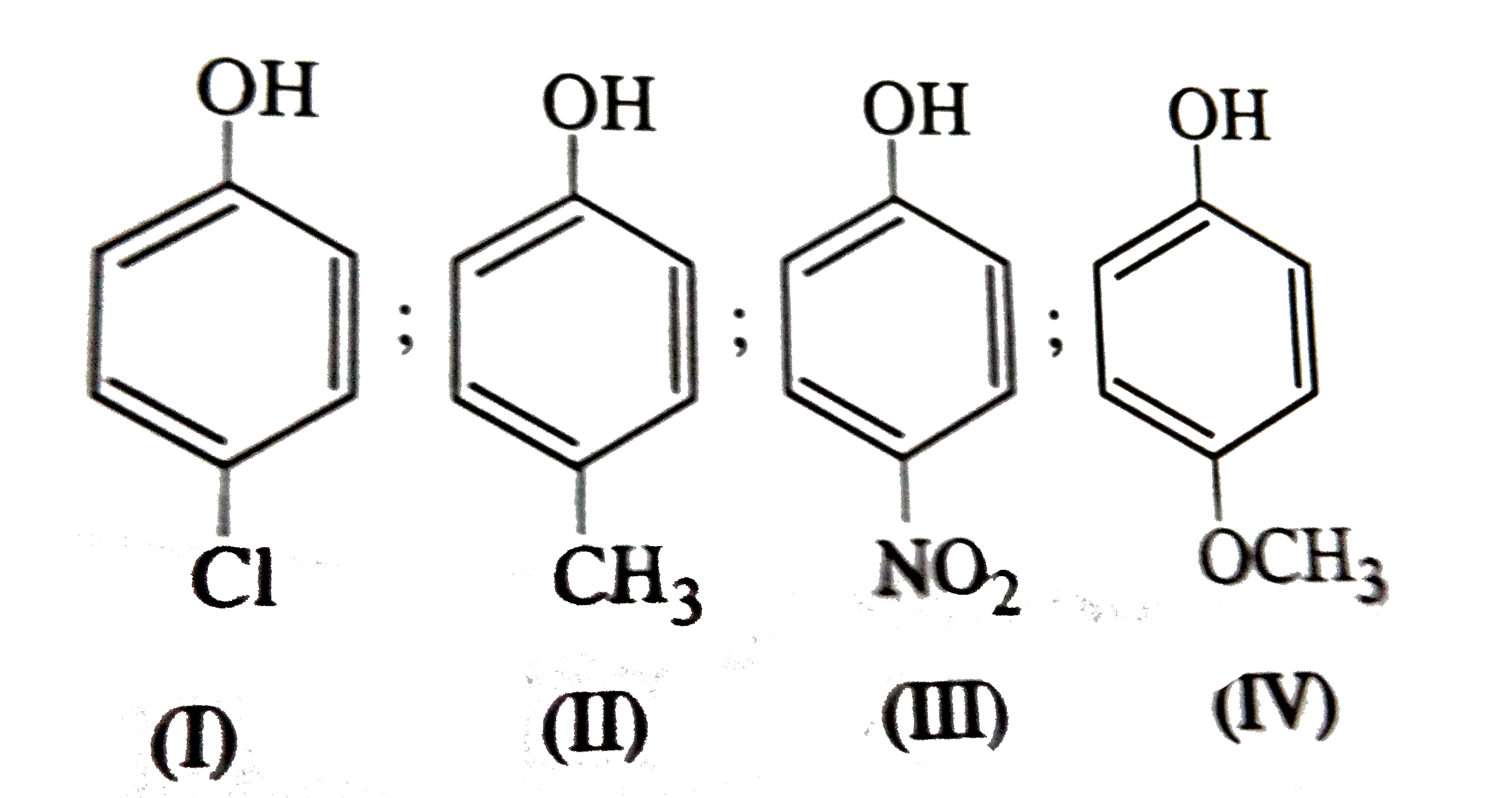Coordination compounds plays many important roles in animals and plants. The are essential in the storage and transport of oxygen as electrons transfer agents as catalysts and in photosynthesis Wide range of application in daily life takes place through formation of complexes Photographic fixing qualitative and quantitative analysis purification of water metallurgical extraction are some specific worth mentioning
Arrange of the following in order of decreasing number of unpaired electrons
(I) [Fe(H2O))6]2+
(II) [Fe(CN)6]3−
(III) [Fe(CN)6]4−
(IV) [fe(H2O)6]3+
(a) IV,I,II,III
(b) I,II,III,IV
(c) III,II,IIV
(d) II,III,I,IV .
The correct Answer is:A
[Fe2+(H2O)6]2+,Fe2+=3d6
H2O is a weak field ligand so, no pairing of elctrons occurs
(II) [Fe3+(CN)6]3−,Fe3+=3d5
Since cyanide ion is a strong field ligand, hence pairing occurs
(III) [Fe2+(CN)6]4−,Fe2+=3d6
Pairing occurs
(IV) [Fe3+(H2O)6]3+,fe3+=3d5
pairing does not occur
The decreasing number of unpaired electrons is
IV>I>II>III(5>4>1>0)

Topper's Solved these Questions
- COORDINATION COMPOUNDSBOOK - CENGAGE CHEMISTRYCHAPTER - COORDINATION COMPOUNDSEXERCISE - Exercises Multiple Correct(Naming And Terminology)
9 Videos
- COORDINATION COMPOUNDSBOOK - CENGAGE CHEMISTRYCHAPTER - COORDINATION COMPOUNDSEXERCISE - Exercises Multiple Correct(Isomerism )
10 Videos
- COORDINATION COMPOUNDSBOOK - CENGAGE CHEMISTRYCHAPTER - COORDINATION COMPOUNDSEXERCISE - Ex 7.2 Objective
8 Videos
- CHEMICAL KINETICSBOOK - CENGAGE CHEMISTRYCHAPTER - CHEMICAL KINETICSEXERCISE - Archives Subjective
23 Videos
- D AND F BLOCK ELEMENTSBOOK - CENGAGE CHEMISTRYCHAPTER - D AND F BLOCK ELEMENTSEXERCISE - Archives Subjective
29 Videos
Similar Questions
Coordination compounds plays many important roles in animals and plants. The are essential in the storage and transport of oxygen as electrons transfer agents as catalysts and in photosynthesis Wide range of application in daily life takes place through formation of complexes Photographic fixing qualitative and quantitative analysis purification of water metallurgical extraction are some specific worth mentioning
Lead poisoning in the body can be removed by
(a) EDTA in the form of calcium dthydrogen salt
(b) Cis-platin
(c ) Zeisse' s salt
(d) DMG .
View SolutionCoordination compounds plays many important roles in animals and plants. The are essential in the storage and transport of oxygen as electrons transfer agents as catalysts and in photosynthesis Wide range of application in daily life takes place through formation of complexes Photographic fixing qualitative and quantitative analysis purification of water metallurgical extraction are some specific worth mentioning
Extraction of Ag from sulphide ore and removal of unreacted silver from photographic plate involve complexes:
(a) [Ag(S2O3)2]3− ion both
(b) [Ag(CN)2]Θ in both
(c) [Ag(S2O3)]3−,[Ag(CN)2]Θ
(d) [Ag(CN)2]Θ,[Ag_(2)(S_(2)O_(3))_(2)]^(3-) .
View Solution
Knowledge Check
Which of the following arrangements shows the correct order of decreasing number of unpaired electrons.
AN>Al>O>CaBN>O>Al>CaCO>N<Al>CaDO>N>Ca>AlArrange the following atomic numbers in the increasing order of number of unpaired electrons
A16B32C40D57Arrange the following compounds in order of decreasing acidity :
 AII>IV>I>IIIBI>II>III>IVCIII>I>II>IVDIV>III>I>II
AII>IV>I>IIIBI>II>III>IVCIII>I>II>IVDIV>III>I>II
Coordination compounds plays many important roles in animals and plants. The are essential in the storage and transport of oxygen as electrons transfer agents as catalysts and in photosynthesis Wide range of application in daily life takes place through formation of complexes Photographic fixing qualitative and quantitative analysis purification of water metallurgical extraction are some specific worth mentioning
The complex [Fe(H2O)5NO]2+ is formed in the brown ring test for nitrates when freshly prepared FeSO4 soultion is added to aqueous solution of NOΘ3 followed by addition of conc. H2SO4 Select correct statement about this complex
(a) Colour change is due to charge transfer
(b) It has iron in +1 oxidation state and nitrosyl as NO⊕
(c ) It has magnetic moment of 3.87BM confirming three unpaired electrons in Fe
(a) All the above are correct statements .
View SolutionCoordination compounds plays many important roles in animals and plants. The are essential in the storage and transport of oxygen as electrons transfer agents as catalysts and in photosynthesis Wide range of application in daily life takes place through formation of complexes Photographic fixing qualitative and quantitative analysis purification of water metallurgical extraction are some specific worth mentioning
Cu2+ and Cd2+ both are precipitated as sulphides on passing H2S gas in dil HCI medium However, precipitation of Cu2+ is prevented by
(a) Adding excess of K4[Fe(CN)6] when Cd2+ is only precipitated
(b) Adding excess of KNC when Cu2+ for stable complex [Cu(CN)4]3− and Cd2+ forms unstable complex [Cd(CN)4]2−
(c ) All of the above
View SolutionArrange the following compounds in order of decreasing acidity :

View SolutionWhich of the following complex is with lowest number of unpaired electron
View SolutionArrange the following compounds in order of decreasing acidity:

View Solution
